
Tokyo 2020 is postponed, but for aspiring Olympians eyeing up the remaining quota places, the past seven months of COVID-19-related uncertainty have presented additional challenges...
With eight Tokyo 2020 quota places still up for grabs and the status of four continental selection events being at the mercy of the COVID-19 pandemic, Sport Climbing athletes are balancing their physical training with immense psychological stress, all while keeping one eye on the news. Since the IFSC's announcement that qualification for the Tokyo Games must be completed before the end of 2020, the fate of the four selective continental championships - whether they happen or not - will decide the remaining Olympic tickets within the next two months. In the event of cancellation, selection reverts to the highest-ranked, eligible athletes in the 2019 Hachioji Combined World Championships.

In this write-off of a year, all but two 2020 IFSC events have been cancelled to date: the PanAmerican Championships and the Lead World Cup in Briançon. Fortunately for PanAmerican athletes, they narrowly escaped COVID-19's cancellation domino effect at the end of February. Alannah Yip (CAN) and Colin Duffy (USA) joined the ranks of Tokyo-qualified athletes, before events began dropping off the calendar one by one, including the typically immovable feast that is the Olympic Games itself. The big news hit on 24th March, and while Tokyo-qualified climbers could breathe a sigh of relief and recalibrate for 2021, the hopefuls who had yet to punch their ticket remained in limbo.
As with most aspects of 2020 life, 'TBC' and 'POSTPONED' became a recurring theme when scrolling the IFSC events page. A scaled-down and socially-distanced World Cup in Briançon - 'a World Cup in name, but not in nature', as IFSC commentator Charlie Boscoe put it - was a promising mid-year start to the season, but arguably the four most important events were rescheduled three times and ended up poised precariously at the end of the calendar, just when scientists were predicting a second-wave peak: the European, Asian, African and Oceanian Continental Championships.
At the point when COVID-19 went global, just 57% of total athlete quota places across all sports had been filled, creating a logistical challenge for the IOC, who promptly extended the qualification deadline to 29 June 2021 and permitted some changes to qualification pathways. Given the new deadline, what's the IFSC's rush to get qualification in the bag in 2020? The official IFSC position is as follows:
'There are several reasons and considerations behind the IFSC position to stick to the current Qualification System, ending in 2020 and approved by the IOC. One is that the Qualification System was thought out to be concluded in 2020 and this process was accessible to the pool of athletes in their 16th year, thus born no later than 2004. Postponing any of the remaining events to 2021 would open the procedure to a different pool of athletes making it unfair towards athletes qualified within the first half of 2020. Further practical considerations have to be taken into account, as these events have already been postponed twice, and a further delay would require new dates and organisers, without the guarantee, in these uncertain times, to actually run the event after all. Ultimately, we have a duty towards our athletes and, with a very full calendar 2021, extending this period of uncertain expectations sine die is unfair and the IFSC must take a clear position.'
It's worth noting that the qualification process essentially began in early 2019 at the first IFSC World Cups, which were crucial for acquiring ranking points for Toulouse and Hachioji selections in some nations, so by December 2020, that adds up to a lengthy two-year qualification process for many athletes.
Two countries - Austria and France - have publicly announced that they will not be sending athletes to the European Championships in Moscow in November, while other nations are quietly stepping back. Austria Climbing were the first to make a call on 11 October. 'This decision was not an easy one, but the health of all concerned is clearly paramount,' KVÖ sports director, Heiko Wilhelm explained. 'We have consulted with coaches and also sought the opinions of athletes. From our point of view a delegation to Moscow is not justifiable due to travel warnings and restrictions.' With two further potential quota places up for grabs to join Austrian superstars Jakob Schubert and Jessy Pilz in Tokyo, it was a bold move by the delegation.
On 30 October, France's FFME followed suit, citing the rising case numbers at home and in Russia, the difficulty in obtaining visas, potential flight cancellations and the lack of 'sporting interest' due to limited participation as the reasons behind the decision. France has filled its country quota of four climbers, but as a major nation in the sport, it was a nonetheless decisive act.
The facts and figures back up their cause for concern. On 26 August, the Russian government lifted restrictions on entry for foreign coaches and athletes to facilitate travel for international competitions. Now, two months later, Russia has the world's fourth-highest number of cases, and Moscow has been the epicentre of the country's outbreak, with 5,478 new COVID-19 cases confirmed last week and the city's fifth reserve hospital for coronavirus patients opening. While other countries have banned crowds at sporting events, Russia has permitted some of the biggest crowds in Europe.
Moscow officials have imposed some event capacity restrictions, but 700-1000 spectators per day are expected to attend the indoor, 10-day IFSC European Championships later this month. As more countries trigger lockdowns, the fate of this event seems especially fragile, while federations appear to be hanging back until the registration deadline (6 November) to make a last-minute assessment and decision before booking flights and accommodation. Now, three days before the deadline, only twelve nations have registered athletes for the event. The Russian government requires all arrivals to obtain and present a negative COVID-19 test certificate dated less than 72 hours before travel. The IFSC have stated that organisers 'will put in place all necessary measures and protocols to guarantee the health and safety of all the athletes, delegations, officials and parties involved' at each continental event, following the same guidelines that were implemented in Briançon. It has to be assumed that teams will form their own social bubbles for protection during the events.
In early July, China's sports body announced that nearly all international sporting events would be cancelled, aside from the Beijing 2022 Olympics trials. The IFSC Asian Continental Championships, due to be held in Chongqing, had already been rescheduled and assigned for relocation by the IFSC in March, given the prevalence of the virus in China at the time. At one point, Korea's Jongwon Chon and Chaehyun Seo hesitantly - but ultimately incorrectly - announced that they had been assigned Asia's continental quota places, as the event was rumoured to have been cancelled. Xiamen is currently displaying as the proposed new location for 9th-13th December in the IFSC calendar, but the Asian Council is in discussions regarding the location, with most countries in support of holding the event, one source explains.
Down under in the Southern Hemisphere, the Oceanian Championships in Sydney, scheduled for 19-20 December, have a uniquely complex set of circumstances to navigate, despite only two nations being involved in the event (or perhaps because of this). Australian athletes in the state of Victoria - including top-ranked Hachioji athletes Oceana Mackenzie and Campbell Harrison - currently have no access to public training facilities until 9 November, while New Zealanders - due to the strict but effective virus management in their country - will face a bill of $3100 NZD per person upon their return home to isolate over Christmas and New Year in a mandatory isolation hotel.
Given the binary nature of this continental event, if one nation withdraws, is it fair on the other country if this leads to cancellation? This was one of many pertinent questions raised by New Zealander Eddie Fowke, an IFSC photographer and founder of The Circuit Climbing. 'Is it ever the responsibility of the organisers to ensure that an event is fair for everyone?', he wrote on Instagram. 'Or just fair for as many people as is reasonably possible under the circumstances?' Eddie cited examples of travel restrictions making it difficult for certain nations to enter particular World Cups, such as Iranians and Russians gaining entry to the US, and the poorly-attended Briançon World Cup this summer, which was largely a result of national restrictions.
Meanwhile, in Africa, the situation is slightly less complicated for athletes, but sourcing staff has proved more difficult. 'As things stand, we are going ahead with the competition in Cape Town on 17-20 December,' Chris Naudé of the South African National Climbing Federation comments. 'It is a little complicated and risky as we don't know what the future holds.' Quarantine is not required for travel to South Africa providing that a negative test is conducted within 72 hours of departure, but a technical delegate and Jury President who were due to travel from the UK are currently unable to travel. 'We are now looking at Poland and other possible sources of qualified assistance,' Chris adds. Unlike in Moscow, no spectators will be permitted at the event.
***
During the last eight months of uncertainty, Olympic hopefuls who initially planned to peak in March have since troughed and oscillated between highs and lows in both physical and mental performance. The negative impact of the postponement on athletes' mental health has been acknowledged by the Tokyo 2020 Organising Committee, while one study in Japan explored its toll on athletes' self-identity and found that for some, it has led to an 'existential crisis'. Others are delaying education, marriage or starting a family due to the delay. Sustaining their fitness and motivation for a chance to compete in their sport's Olympic debut has taken its toll, as many athletes have revealed in emails and messages and publicly on social media. One climber, who wished to remain anonymous, confided: 'This season has been a stressful one, especially with one of the biggest comps still going ahead while some athletes are still in lockdown or not at full training, while others are doing their normal training without restrictions, which seems pretty unfair and not right to me.'
Back in April, the IFSC announced that Anouck Jaubert (FRA) and Michael Piccolruaz (ITA) had earned quota places based on their Hachioji rankings due to the mandatory transfer of two unused Tripartite Commission places if unallocated by the end of March, as per the qualification rules - an unfortunate and cruel twist for their compatriots, who were deprived of the chance to fight for their country's last spot in the middle of lockdown due to Moscow's postponement. It was perhaps the first sign that the pandemic would not only push back the Games itself, but also strongly influence who qualifies amid a very uneven playing field of luck, circumstance and opportunity as goalposts shifted.
On social media, the climbing community was initially convivial and expressed great solidarity as countries locked down. Eight months later, this early spring optimism - alongside the novelty of house-climbing, the #bananalockchallenge and livestreamed fingerboarding - has long faded; athletes want to compete, but they also want to do so fairly while prioritising their own health and that of others. But with local and national lockdowns, travel restrictions and quarantine fees, can the remaining events take place, and if they go ahead, is it fair if the opportunity is not available to all athletes, or comes at a price (monetary, or of health)?
Throughout the pandemic, athletes have had varying degrees of access to training facilities. Although home boards and climbing outdoors are decent substitutions for indoor Lead and Boulder training, the IFSC homologated Speed route, which is few and far-between globally, is harder to replicate. Some athletes relocated, either moving back in with parents or living abroad to dodge lockdowns and optimise their freedom. While the summer months didn't appear to hold the likes of Alex Megos and Laura Rogora back from ticking 9c and 9b, alongside other major ascents, the prospect of being unable to train on rock in the autumn and winter months is a new limitation for some athletes to overcome, depending on their location.
British athlete Molly Thompson-Smith admits to having felt 'very anxious and directionless' for several months. A successful summer on rock motivated her, even if she felt guilty at first for not training indoors. 'Everyone saying 'It's definitely not going to happen!' but having to still train like it will go ahead has been stressful,' Molly says. 'A last-minute cancellation would be disappointing, but I have mixed feelings about the event - it's completely unfair for it to go ahead currently as everyone is in a different situation regarding access to facilities. An Olympic qualifier should definitely be a fair event for all.' Some professional climbers can continue training, while non-pros on the same team don't get the opportunity to compete, Molly explains. 'However, as a professional athlete, it's my job to compete when possible and with the last Olympic spot still up for grabs I'd regret not trying for it,' she concludes.
Molly's GB teammate Will Bosi echoed her sentiments. 'The postponements have been really tough to deal with. Being 100% prepared and ready in March, it was hard to start the training cycle over again,' he says. Since the event's move to November, Will has found it easier to stay motivated despite wall closures. 'Without any other comps it's also impossible to know what shape I'm in, but that will be the same for everyone I guess. However, with all the recent GB Climbing training sessions I feel in good shape and feeling ready to go for it. I also trust them to minimise the risks involved and make it as safe as can be for us,' he adds.
Slovenian athlete Jernej Kruder is in the enviable/unenviable position of being the European countback selection due to his performance in Hachioji. 'My thoughts are influenced by this - I'm hoping for a cancellation of the Europeans,' he admits. 'On the other hand, I'm asking myself, how fair will the competition be? Many strong guys will be missing, some countries are already in lockdown and can't train, and what if someone tests positive just before we travel? So in my opinion, I see no reason to have a competition in these awkward times.' The Slovenian team has the privilege to travel around the country, but two training sessions have been cancelled, Jernej says. 'My team is working super hard to get us there safely and prepared, but they are losing their nerve. It's so difficult to organise everything - after all, we're not soccer players or cyclists, money-wise.' His final thoughts are clear: 'If everybody has the same training conditions as they had pre-COVID-19, then let the competition happen. If not, the IFSC should think about this more wisely.'
Coaches are under mounting pressure to make difficult decisions. Like Jernej, Slovenian Climbing Team coach Gorazd Hren feels strongly that Moscow is excessively risky and unfair, but is nonetheless in two minds. 'We haven't decided yet whether we will go to Moscow or not,' he says. 'To consider going is only because we are somehow "forced to" as it's an Olympic qualifier. Also, many of our athletes have personally decided that they don't want to risk infection and don't want to go.' Gorazd stresses that his concerns would be the same even if cancellation wasn't in his interest due to Jernej's position. 'I would think this way no matter what and I would agree with postponing the event immediately if possible.'
Israel's Alex Khazanov has a glass-half-full outlook. 'The virus has affected all of our lives. Every country is a little different, but the uncertainty of the future is one of the things that we all have in common,' he comments. 'As athletes, uncertainty is one of the hardest things we can deal with. It's frustrating to train for a competition that you don't know will happen or not, and it's even harder to train when you can't leave home.' In March, Alex took time off to relax and spend time at home as a break from travelling, rather than agonise over the fate of events, before getting back to training. 'It's a difficult time to be a competitive athlete, but I also see this as an opportunity,' he continues. 'As athletes we're all running a marathon, and right now we're running uphill and it's OK to run slower, as everybody slows their pace. But it's also the time to run a little faster than everyone else to surpass your competitors.' The shift in routine and perspective has enabled some athletes to feel in greater shape than ever - Alex included. 'I took the time to get better at my weaknesses and I'm certain that I'm now a better and more complete athlete and climber than I was before the lockdown,' he says. 'I think it's key to keep progressing, even at this time.'
For German athlete Alma Bestvater, the postponements have been a blessing in disguise of sorts, but an emotional rollercoaster nonetheless. She is one of few athletes to openly express their feelings on Instagram.
Like other injured athletes, who now have a fortuitous second chance, the desire to seize the opportunity is tempered by a feeling of unease. 'Since I got injured in March shortly before the initial date of the European Championship, the whole pandemic is actually quite lucky for me,' Alma says. 'So every time the Europeans were postponed again, I was happy, because this meant for me that it would be more realistic that I could participate again and that I would not be completely unfit.'
Staša Gejo of Serbia missed out on both Hachioji and Toulouse last year due to injury, so Moscow was always going to be the last chance saloon. 'If preparation for the event taught me anything, it was definitely patience and perseverance,' she says. 'It tested my nerves, my motivation and determination in various ways, but I decided not to give up on the dream.' October was the most stressful period yet, Staša explains. 'Nobody knew for sure what was going to happen. Should we still train? Is it worth it, travelling to gyms, being exposed to the virus?' Now, the biggest struggle is staying healthy and uninjured. 'I am counting down the days,' she continues, 'working as much as circumstances allow, getting 100% out of my body and mind and still expecting a happy ending for myself and for everyone in this community who is fighting to make this event happen.'
As Staša alludes to, some athletes might have contracted COVID-19 along the way, which in turn would likely impact their training and potentially their long-term health.
***
At each stage of the Tokyo 2020 selection pathway, and as these events were pushed further down the calendar, athletes and coaches have agonised over the potential scenarios upon cancellation, while fans have speculated online. It's relatively complex, with country quotas and already-selected athletes to consider. Hypothetically, if none of the four continental events go ahead, quota places would be awarded to the highest-ranked, eligible athletes from each continent in the 2019 Hachioji World Championships, who are:
Europe: Ievgeniia Kazbekova (UKR) and Jernej Kruder (SLO)
Asia: Chaehyun Seo (KOR) and Jongwon Chon (KOR)
Africa: Rachelle de Charmoy (RSA) and Calrin Curtis (RSA)
Oceania: Oceana MacKenzie (AUS) and Campbell Harrison (AUS)
Even before the onset of a global pandemic, Sport Climbing's road to Tokyo 2020 has been anything but straightforward. A lawsuit is ongoing between the Japanese federation and the IFSC over a qualification rule dispute, and last-minute rule changes and confusion regarding selection for the second qualification event in Toulouse last November added to the selection saga. Once the forty Sport Climbing athletes are finally confirmed, all eyes will once again turn to Tokyo 2020(1). Japan has ordered half a billion doses of COVID-19 vaccines - enough to vaccinate its population four times over - in anticipation of safeguarding the Games next year.
In general, athletes have stayed relatively quiet about their qualification quandary, perhaps fearing that expressing even minor frustration during a pandemic would appear tone-deaf, or not wishing to complain when other athletes are in similar or worse circumstances. There's nothing like a global health crisis to put things into perspective, after all. As long as events remain on the calendar, however, athletes are placed in a difficult position, being forced to choose between losing out on a chance to pursue their Olympic dream, or risking viral transmission in a diminished field, with the leverage of sponsorship and funding obligations no doubt carrying some weight in athletes' decisions.
Outlining his Olympic philosophy, Pierre de Coubertin, the 'father' of the Olympic Games, said: 'The essential thing is not to have conquered but to have fought well.' Perhaps what is most vexing to athletes is the fact that if these events take place, a win may feel hard-fought, but will it have been a fair fight? COVID-19 might have taken some shine off the sport's big debut, but there's no doubt that whichever climbers make the cut - no matter how they make it - they will all deserve a medal for perseverance, if nothing else.
- INTERVIEW: British Mountaineering Council CEO Paul Ratcliffe reflects on 2024 12 Feb
- INTERVIEW: Team GB Olympian Erin McNeice on her breakout 2024 season 11 Feb
- SKILLS: Push Your Grade: How to Climb Your First 7a Sport Route 6 Nov, 2024
- ARTICLE: Olympic Route Setter Garrett Gregor on Paris 2024 17 Sep, 2024
- ARTICLE: How did the Paris 2024 Olympic Games impact Sport Climbing Athletes' Instagram Followin 4 Sep, 2024
- ARTICLE: Meet the Paris 2024 Olympic Routesetters Part 3: Olga Niemiec, Boulder 4 Aug, 2024
- INTERVIEW: Meet the Paris 2024 Olympic Routesetters Part 2 - Martin Hammerer, Lead 1 Aug, 2024
- ARTICLE: Sport Climbing at Paris 2024: Schedule and How to Watch 30 Jul, 2024
- INTERVIEW: Meet the Paris 2024 Olympic Routesetting Team - Garrett Gregor 29 Jul, 2024
- INTERVIEW: GB Climbing Olympic Coach Rachel Carr on Paris 2024 24 Jul, 2024










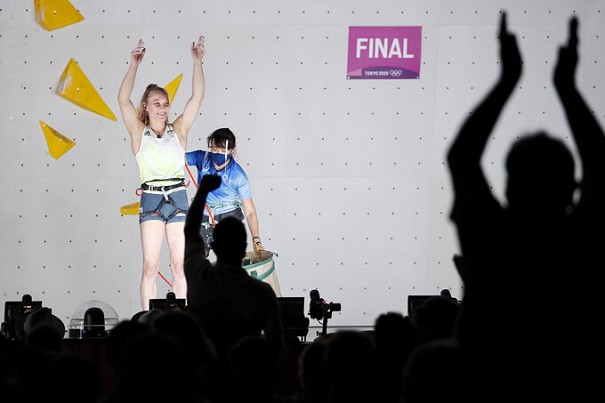
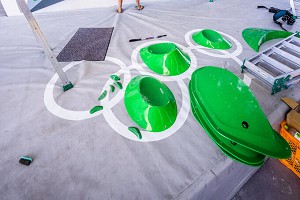
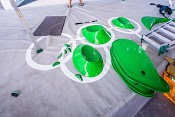
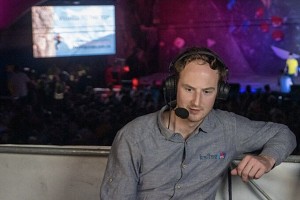
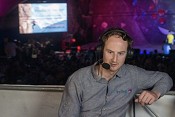
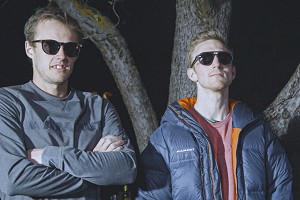

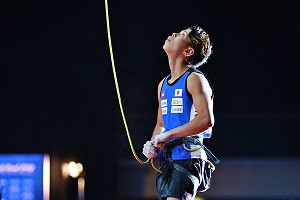
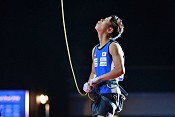
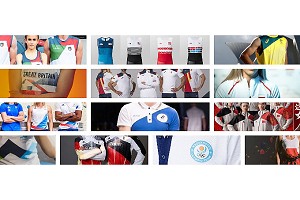

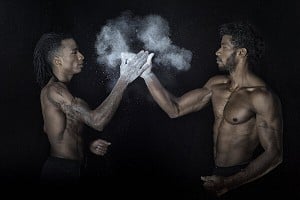

Comments
Its all so complicated. Regardless i wouldn't bet much on the revised date of 21/7/2021 getting the go ahead to be honest.
Do we really think they are going to have this virus under control enough to invite athletes and supporters from around the world to converge on Tokyo? Only way i see it going ahead is with a vaccine.
I feel really sorry for the athletes. I follow Shauna on insta and she has done everything humanly possibly to have a proper go at this (operations, recuperation, training) and i cannot for the life of me see how she can keep going back to the drawing board to reschedule. My guess is the body can only take that level of preparation for so long.
'Competition Climbing Athletes in Limbo'?
If the vaccine was ready now would we still be able to go ahead in July? Just getting it to everybody would be a huge job. Unless you had a rule that only the vaccinated can come to Japan.
So even less chance of it going ahead.